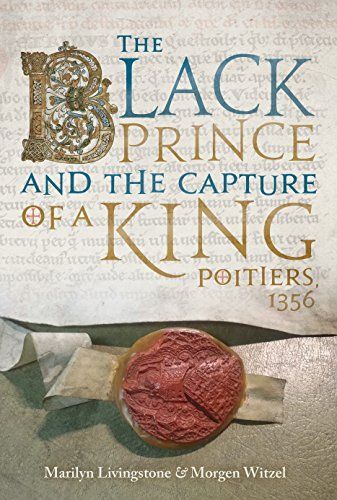
The Black Prince and the Capture of a King Poitiers 1356
This “taut narrative” of the fourteenth-century conflict between England and France offers “a detailed, climactic account of a legendary battle” (Publishers Weekly). The epic fourteenth-century Battle of Poitiers marked a major turn in the Hundred Years’ War between England and France. Prince Edward, known to all as the Black Prince, not only won a surprising victory in his first campaign as commander, but managed the nearly impossible feat of taking the French monarch, King Jean II, prisoner. In the summer of 1356, Prince Edward drove toward the Loire Valley, deep in French territory. There, he met the full French army led by King Jean and a number of French nobles, including veterans of the defeat at Crécy ten years before. Outnumbered, the Prince fell back, but in September, he turned near the city of Poitiers to make a stand. Historians Witzel and Livingstone provide a day-by-day description of the campaign of July to September 1356, climaxing with a vivid description of the Battle of Poitiers itself. The detailed account and analysis of the battle and the campaigns that led up to it has a strong focus on the people involved in the campaign: ordinary men-at-arms and noncombatants, as well as princes and nobles.